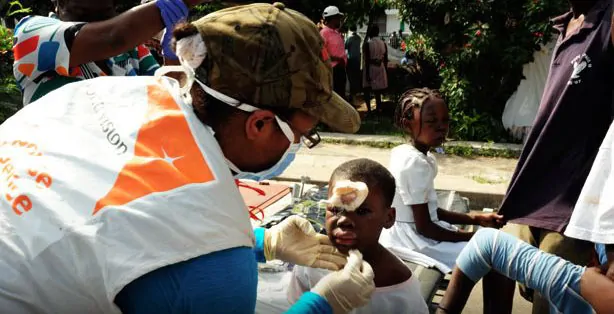Judging from her height and stance, she looks no more than 10, yet experience tells me she’s at least 13. She sits across from me in the car as she guides us to her house down the dirt road. She motions to the right with her hand, but says left, I look at her puzzled, remind her quickly of the English words and she looks embarrassed and says left again with the motion and the word. We pull up to a small cement structure no bigger than my bedroom at home. Behind it stands a crude makeshift metal structure even smaller than the cinder block room in front. “Here,” she says and opens the door to let herself out.
“Stompy” is what the coordinator called her. I wasn’t sure exactly why at first, but when I learn the meaning in Afrikaans, I realize it’s in reference to her height. She told us she didn’t like being called Stompy. She liked Constance better. I call her whatever she wants and give her as much dignity and respect I can. She’s a small girl, living in a small house on the outskirts of a big city in South Africa. Her story is going to become even more colorful.
As I walk toward the house, another child comes to greet us—she is 7 or 8, with a beautiful smile and inquisitive eyes. This is Constance’s “sister.” A quick glance into the home reveals a small table and two chairs. A bed is hidden behind the door. No water in the house except, they tell me, when the rains come and the water floods the area; the bigger problem then is the snakes that get into the “house.” Much of the immediate family aren’t here, at least not anymore.
Two adults appear from the homes, one is Constance’s mother, yet neither one looks old enough. One is a bit younger than I am and the other I guess is a young twentysomething. They are the caretakers for the children. Neither of them work, the only jobs available involve an unthinkable lifestyle. Constance lives here in this small home with nine other family members.
An aunt, a father and her grandmother have all died recently. I didn’t ask what the cause of death was, but I could have taken a guess with 98 percent accuracy. Even if I did ask, the answer would be pneumonia or TB, not the real causes. The family has no male influence helping provide any necessities. The food they eat comes from relief organizations providing handouts for two of the children, the family stretches it to provide for all, but that is all they are given.
I ask Constance the names of the people living in the home. She has difficulty remembering and listing them. She gets to about eight and then has to start over. She has a brother and sister, I think. It’s hard to tell who really are brothers, sisters or cousins. Most all of the kids attend school, but studying is a problem when there’s not enough food to keep their minds from wandering and school uniforms cost money. When December comes, most people will be on holiday, the food may not be delivered during that month due to a lack of drivers. Do I think about that as I open the pantry and complain I have nothing to eat?
If I told you AIDS has left these eight children orphaned, would you wonder how it happened? Would that really matter? It’s a situation that continues to happen. Our responsibility isn’t to judge or point fingers. Our responsibility is to care for those who need help. Our responsibility is to cry out to God for His justice and the saving knowledge of Him to be revealed. Our responsibility is not to try and understand or figure out what happened. Our responsibility is to share Christ with a hurting and victimized world.
As we return in the car to the feeding center for the orphaned children, Constance, her younger sister and a neighbor boy take advantage of the free transport down the road. When we reach our destination I open the door, get out and turn around to sweep up the younger sister in my arms to help her out. Her weight and frame tell me quickly she most likely will not escape the disease that has claimed much of her family. I set her down, but she doesn’t go far from my side. I see Constance heading toward the other children who have gathered for their meal of the day. Rice.
Whatever our understanding about AIDS and the pandemic that is absolutely destroying nations, there are millions of innocent victims who will someday be nothing more than a statistic in a book. Our responsibility is to care for them that may be known as more than just a number.





















